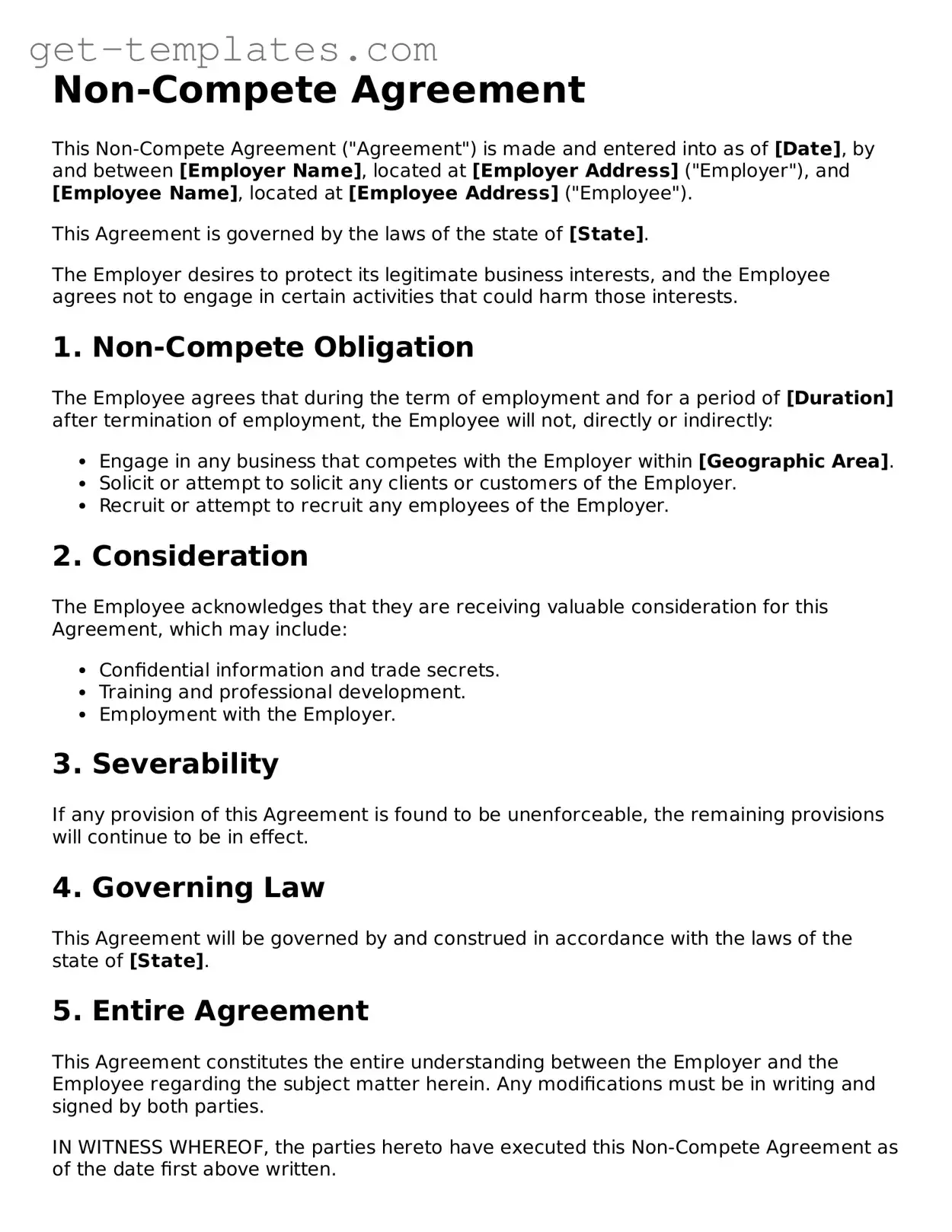Attorney-Approved Non-compete Agreement Form
A Non-compete Agreement is a legal contract that restricts an employee from engaging in business activities that compete with their employer after leaving the company. These agreements are designed to protect the employer's interests, trade secrets, and customer relationships. Understanding the nuances of this form can help both employers and employees navigate their rights and obligations effectively.
Get Document Online

Attorney-Approved Non-compete Agreement Form
Get Document Online
You’re halfway through — finish the form
Finish Non-compete Agreement online — edit, save, download made easy.
Get Document Online
or
⇓ PDF Form
